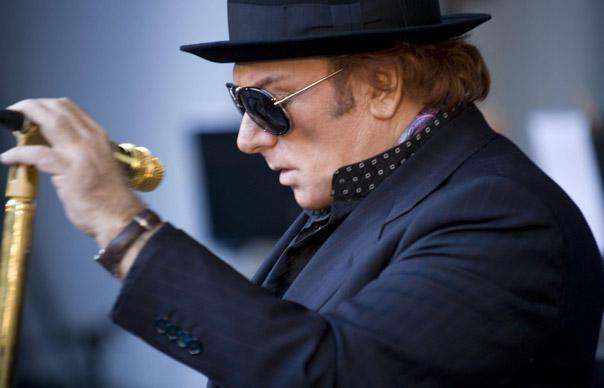Transcendental telepathy. Mystical rushes of energy. Entire bands dismissed on Christmas Eve. A 33/1 bet on Celtic Mist... Meet the real VAN MORRISON. For some 50 years, Van The Man has been one of the most enigmatic heroes of the rock pantheon. Now, though, Uncut elicits the secret stories behind 1...
Transcendental telepathy. Mystical rushes of energy. Entire bands dismissed on Christmas Eve. A 33/1 bet on Celtic Mist… Meet the real VAN MORRISON. For some 50 years, Van The Man has been one of the most enigmatic heroes of the rock pantheon. Now, though, Uncut elicits the secret stories behind 10 of his greatest solo albums. And Morrison himself lifts the lid on his extraordinary art. “I don’t really know,” he says, “if there is any tradition anymore…” Words: Graeme Thomson
Originally published in Uncut’s May 2015 issue (Take 216).
__________________________________
Van Morrison speaks!
“I don’t really ponder past songs unless I want to maybe redo it or do a different arrangement. I get a different experience, working with different people. If you have your own band all the time, then you become too fixed. You need to interact with different players. Well, I do anyway. Lots of people.
“A lot of my songs are difficult, actually. Some people think it is easy. They hear me sing a song. ‘I can do that.’ Then they try it, and they realise, ‘There is more going on here than I really realised.’ The way I am doing it, it sounds like it is easy but its actually not. The songs are quite complex.
“I come from a different era than a lot of people. The people I would be hanging out with when I was a kid would have been much older than me, for instance. Some people my age were into jazz, blues, country music. There were a lot of people in my area, for some strange reason, who had recordings and were into this stuff. I don’t know how that turned out, because it was a very small area. That was the kind of era I grew up in. It was more esoteric. Stuff you had to think about.
“You listened to jazz, it was an intellectual engagement listening. Blues, you had to listen to lyrics, you had to be engaged. You had to feel it. It wasn’t like, turn on the radio and get the Top 10. So I was brought up with that, thank God, rather than getting the perceived wisdom of BBC Radio; even though in those days they had some good music programmes, oddly enough. So that is where I was coming from. Nowadays that would be like a dinosaur, that era is completely gone. It was all kind of interconnected, jazz, blues, folk, the beat thing was going on. There was poetry and jazz. I am from a whole bygone era. I don’t know if there is any tradition anymore. I was lucky to even meet, work and hang out with all these people. I remember the first time I saw Jimmy Witherspoon play in London, it was unbelievable. Like a spiritual experience for want of a better word.
“I met him, it was ’65 or something, hung out at the bar just like normal people. It’s all based on timing. Jazz and blues phasing is all based on playing with time. Some people may think a 12-bar blues is a jam. Jimi Hendrix-type people would think, ‘Jimi played really loudly, so that’s what I am supposed to do.’ That is not 12-bar blues. It’s not what its about at all. It’s all about breaking it up. I don’t know about loud guitar music, but for singers it’s about playing with time; same for jazz. How do you carve up the time, stretch it out? How do you bridge it, how do you make space? It’s all about creating space. It is only transmitted by listening and watching it, and being around it and absorbing it.
“The key is having musicians who understand this. Sometimes, one is lucky and one will connect with musicians who understand what it’s all about. That’s when you can go somewhere. Unfortunately, most musicians don’t understand this at all. They might be great technically; but they don’t have the feeling. They don’t know what you are trying to do, even though you tell them. It’s not something you can even tell people. They have to get it.”


